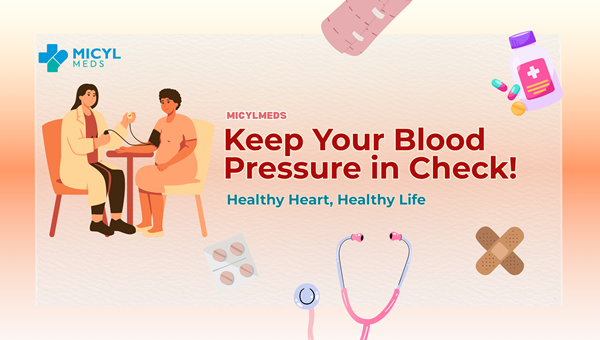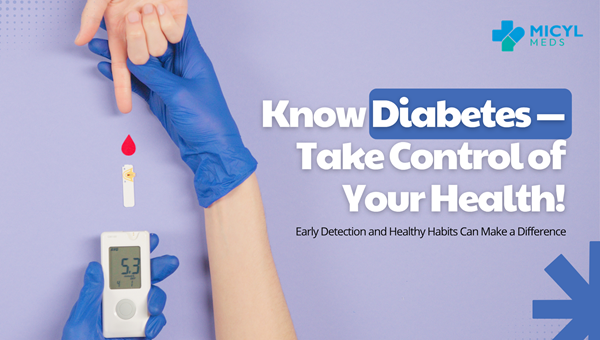Keep Your Blood Pressure in Check!
Aug 08, 2025
Understanding Blood Pressure: What You Need to Know for a Healthy Heart
Blood pressure (BP) is a vital indicator of your heart health and overall well-being. It measures the force of blood pushing against the walls of your arteries as your heart pumps. Keeping your blood pressure within a healthy range is essential to prevent serious health problems like heart disease and stroke.
What Is Blood Pressure?
Blood pressure is recorded as two numbers:
-
Systolic pressure (the top number) — pressure when the heart beats.
-
Diastolic pressure (the bottom number) — pressure when the heart rests between beats.
A normal reading is usually around 120/80 mmHg.
Why Blood Pressure Matters
High blood pressure, or hypertension, means your heart is working harder than it should. Over time, this can damage arteries, heart, kidneys, and other organs. It often has no symptoms, so many people don’t know they have it.
Symptoms and Risk Factors
Common Symptoms (may appear when BP is very high):
-
Headaches
-
Dizziness
-
Chest pain
-
Shortness of breath
-
Fatigue
Risk Factors Include:
-
Poor diet high in salt and saturated fats
-
Lack of physical activity
-
Obesity
-
Stress
-
Smoking and excessive alcohol intake
-
Family history of hypertension
How to Manage and Prevent High Blood Pressure
1. Eat a Heart-Healthy Diet
Focus on fruits, vegetables, whole grains, and lean proteins. Limit salt, processed foods, and sugary drinks.
2. Exercise Regularly
Aim for at least 150 minutes of moderate-intensity aerobic activity each week, like walking, cycling, or swimming.
3. Maintain a Healthy Weight
Losing even a small amount of weight can help reduce blood pressure.
4. Limit Alcohol and Quit Smoking
Both can increase blood pressure and harm your heart.
5. Manage Stress
Practice relaxation techniques like meditation, deep breathing, or yoga.
6. Monitor Your Blood Pressure
Regular check-ups can help detect problems early. Home BP monitors are also useful.
When to See a Doctor
If you experience persistent high readings or symptoms like chest pain and severe headaches, seek medical advice promptly. Your doctor may recommend lifestyle changes, medications, or further tests.
Remember: Maintaining healthy blood pressure is a lifelong commitment that protects your heart and enhances your quality of life. Small changes today can lead to big benefits tomorrow.







